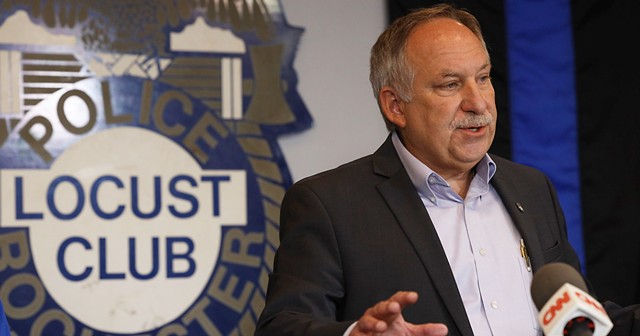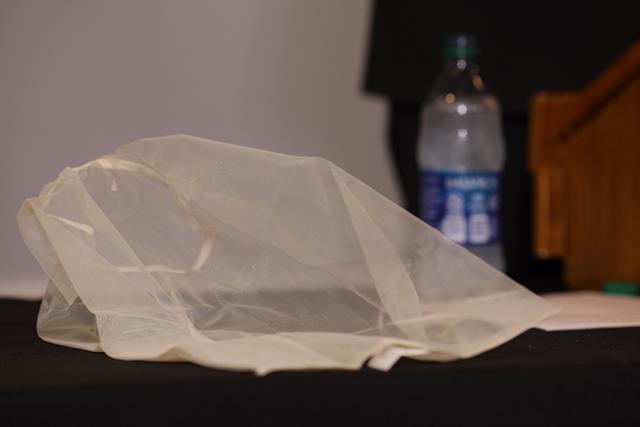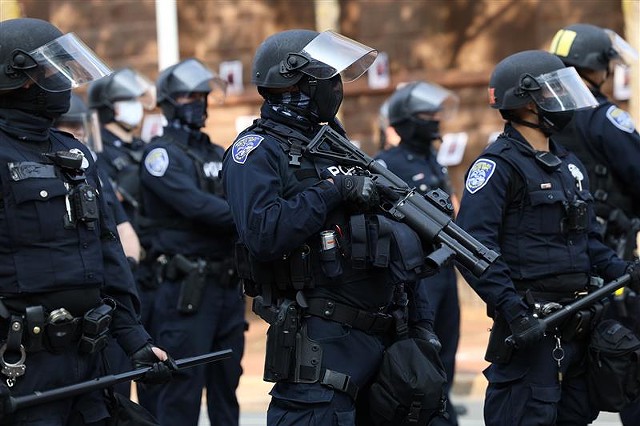Locust Club President responds to CITY's questions on police reform and the union
By Gino Fanelli @GinoFanelli[
{
"name": "500x250 Ad",
"insertPoint": "5",
"component": "15667920",
"parentWrapperClass": "",
"requiredCountToDisplay": "1"
}
]
For its March issue, CITY published an expansive story detailing the history of the Rochester Police Locust Club, the union which represents the 701 sworn officers of the Rochester Police Department.
A series of detailed questions were submitted to Locust Club President Michael Mazzeo, asking his stance on current contentious issues related to policing, police reform, and the role of the police union in context of the broader labor movement.
Below are the answers Mazzeo provided, lightly edited for clarity and style:
CITY: There is a current division over whether police unions should be included in local labor federations, particularly due to a complicated history between police and the labor movement. For example, the local chapter of Workers United has pushed to expel police unions from the AFL-CIO, while the local president of the labor council, Dan Maloney, has offered his support for the police union, and Mazzeo in particular. What role do you believe the Locust Club has played and plays in the context of the broader labor movement, and how do you respond to those calling for the expelling of police unions?
Mazzeo: That has been a discussion that goes back over 100 years. Samuel Gompers favored affiliating police units while there was a large voice to keep them out. 102 years later the current AFL president also is against removing police units.
The Locust Club has been strong supporters with both private and public unions in this area labor council. Police unions have the same representative issues that any union has. We have supported other unions when management has attacked them unfairly. We have walked and supported pickets and strikes. We have supported public policy that called out inequality and social injustices and stood with our other brothers and sisters in labor to voice that message in a strong united voice.
History has shown expelling police unions is not the right answer. Attacking unionized workers while failing to hold policy makers responsible is wrong and is why we have the problems that we are facing right now.
Those who would work to divide and suppress different classes in this country do not want to see unionized police officers. By separating police from the labor movement is a way to use the police for political control. Police have been used as pawns in controlling class structure for over 100 years.
Expelling police unions from mainstream labor results in negative not positive outcomes for both the labor and the civil rights movement in this country.
CITY: There seems to be often misunderstandings among the public on what the role of the Locust Club is. Could you, in simple terms, explain what you believe to be the current mission of the police union?
As stated, before we have all the same functions that any other union has. I believe our most important function is to be the watch dog against bad public safety policy by city, county, and state governments. A fair review of our record for the past ten years will show where the Locust Club has stood on public safety initiatives that have not been in the best interests of all in our community.
Police responses to crime are almost always politically driven. When those initiatives have resulted in negative public responses it is the police who are blamed, not the politicians who have forced those initiatives to occur. We have called out decentralization of police services which have separated us from those we serve and were directed by elected officials over financial reasons not for the best interest of public safety. It is police chiefs, management organizations and politicians that call for law and order legislation. Police unions rarely call for changes in legislation unless it is specifically for the safety of our community and our members. The Locust Club has consistently called out slanted and inaccurate crime stats that have been falsely reported to the public by unscrupulous elected officials for their own political self-serving needs.
CITY: You have called in the past on a need for reform of policing policy and procedures, on both the state and local level. At the same time, there have been instances where you have seemingly defended the use of current policies and procedures, such as "segmentation" and "spit socks" used in the restraining of Daniel Prude. Where do you believe reform begins, and what role does the Locust Club play in accomplishing meaningful changes to protocol?
Mazzeo: That is factually not correct, specifically regarding “segmenting” I was very clear that is what is trained to our members and is the policy and procedure that police management has put into place. I said you cannot blame our members for using what they are taught and are following procedures that they have no control over. I publicly stated that if that training is wrong and the procedures are wrong, change them!
We do not negotiate those procedures or policies, nor do we have standing to challenge them. If there is a better way to handle a similar situation then our people should be trained in them and the policy and procedures should be changed immediately. To this date there has been no changes in the use of “segmenting”. That question should be directed at the Chief of Police not at the police union!
Reform begins by taking politics out of policing.
Review every State of the City address or every mayoral campaign on what their views on policing are! Politics put pressures on police chiefs who then order police officers to act. When something becomes a problem, it is easy to blame an individual officer rather than those who are ultimately responsible. Weak and inadequate leadership is too often allowed to hide behind the excuse that an incident under public scrutiny is the failure of an individual actor verse bad policy and direction.
CITY: In the 1960s, the Locust Club, with newly anointed collective bargaining power, had challenged the formation of the police advisory board. Today, history is somewhat repeating itself, with the legal challenges poised at the Locust Club by the Police Accountability Board. In the past, you have complained about the Locust Club not being included in the process of creating the PAB. Do you support, in any way, shape or form, an independent police review body? What would need to change about the current body to receive your support? Do you believe the current (Professional Standards Section) procedures for discipline are adequate? If not, what do you recommend?
Mazzeo: What management does not want to give up and the PAB believes they should also be is investigator, prosecutor, and judge all in one! Does anyone believe that all those roles should be done by the same entity?
Would anyone accept that process or believe that that process can function with impunity?
Our members do not have "just cause”, they do not have a binding decision in a hearing. We cannot grieve or arbitrate a disciplinary finding. A member who is exonerated in a hearing can have that decision ignored and punishment levied by the chief of police. The biggest fallacy that city government sells to the public and the media is that the “police contract” prevents a member from being punished or terminated! We have less protections that every other public sector employee has in this state.
When the mayor says “we will give them a hearing and then terminate them," the Locust Club cannot stop her. If that was you or a family member do you believe that is fair?
We believe that having a fair hearing with a neutral hearing office that is binding is needed. Take politics out of policing the police. That will hold officers accountable for actions that they are solely responsible for, and will prevent police chiefs and mayors from hiding from things that they are responsible for.
CITY: What are your positions on police alternative response programs, such as the Person in Crisis (PIC) Team? If data supported their efficacy in handling mental health and substance abuse crises, would you support a transferring of a portion of RPD's budget to these programs?
Mazzeo: I have lived through similar programs that were effective, and then were scaled back by budget cuts. (The Family Crisis Intervention Team) was well staffed and successful, they provided the services and the referrals that a cop on the street does not have or the time to find for someone. It was not the union that supported those cuts, nor did we support the mental health facilities that were closed by the state that left thousands of individuals out on the street with no services. The only ones left to deal with those individuals were the cops who had nothing to offer them for help or services. That was also before the influx of the addiction issues that we face today that we could barely compared to what must be handled today.
We cannot be left out of the conversations on how to interact with the services that are proposed because we are going to be the ones who will be interacting with them daily. Proposing that budgets must be cut to provide services that we had once before is not being truthful about what is needed. Past budget cuts have resulted in the removal of support services that have led to the problems the department has on policy and training. The areas of the city that need us the most will suffer further by making budget cuts by elected officials who have not taken the time or energy to understand what the real problems facing neighborhoods in this city are.
CITY: The current make-up of the Rochester Police Department includes 43 of 701 sworn officers who are city residents, or 6.1 percent. Mayor Lovely Warren has called on a residency requirement for officers. Do you believe a residency requirement would help community relations? Would the Locust Club support such a requirement, or challenge it?
Mazzeo: I do not personally believe that a residency requirement will be productive. What would be productive would be putting police sections back in the neighborhoods. That in essence would be a “residency” policy that would work.
A residency requirement right now would crush recruitment which is already almost non-existent now. Good candidates who already are established with families would not be willing or able to make the move.
There are just as many studies that show a residency requirement is ineffective as there are that says it would be effective. The union would support voluntary programs that could entice members to reside in the city.
CITY: Crowd control is the subject of the first investigation by the PAB. You've likely had many conversations, and seen the videos of RPD's crowd control tactics, particularly the use of Pepper Balls, tear gas, and LRADs. Do you believe these tactics were appropriate given your knowledge of the situations? If yes, do you believe RPD has been unfairly characterized due to their response? If no, what do you believe should be changed?
Mazzeo: Crowd control is one of the most difficult and dangerous situations to have to address. The larger a crowd the more difficult it is to effectively communicate concerns to them.
How can anyone believe that having a protest on policing is going to go well when you have police who are tasked with keeping that protest safe also being the subjects of that protest. It is an unwinnable situation!
A police officer holding a protest line who has a protester calling their family on a cell phone while directly in front of the officer and portraying to those family members that the officer was in harms way is not protesting a concern. It is an act of terror and is enticing a confrontation verse making a political statement. If an oversight board is not going to review that as well as complaints of inappropriate police response, then it is difficult to believe that oversight is unbiased or is able to get to the truths of what may have occurred.
The police response to a protest should be dictated by the actions of the protesters, those responses should be based on the training and experience of individuals who have received extensive training in dealing with large crowds and are best suited to respond appropriately to the situation at hand.
I do not believe anyone would accept what I believe was an appropriate police response to the protest or what I believe was the inappropriate actions of some of the protesters. In the same light, a member of the PAB who took part in the protest should not be part of a process to investigate the police responses as well.
If we are going to review the response of the RPD in handling a protest that was directed at them then the reviewing body should be made up of recognized experts on in the field of crowd control and protests. When the questioning of the police response is supported by city council members who also attended and was a part of the protest then their ability to publicly question the appropriateness of the police response should not be allowed or accepted as being unbiased.
A complete review of a police response such as in a protest should always be accepted, but it must be fair and independent as well.
CITY: Lastly, I'll offer a simple, broad question: do you believe the public's understanding of police work, and the unions which represent those workers, is lacking? Do you believe there are misconceptions about the role of police in society as a whole, and if so, what do you believe are the biggest sticking points?
Broad is not a fair description for this question. In any conflict of opinion between opposing groups there is almost a 100 percent probability that there is some level of misunderstanding of the other side.
There is not a total misunderstanding of all on police work or police unions, there are some who believe that creating a misunderstanding of policing is somehow going to solve the problems with policing and that is wrong.
The biggest problem in policing is political interference in directing police services. One way is to police chiefs who have a contract verse being under the thumb of an unscrupulous politician.
Hold a contracted police chief up to what they are paid to do.
Gino Fanelli is a CITY staff writer. He can be reached at (585) 775-9692 or [email protected].
A series of detailed questions were submitted to Locust Club President Michael Mazzeo, asking his stance on current contentious issues related to policing, police reform, and the role of the police union in context of the broader labor movement.
Below are the answers Mazzeo provided, lightly edited for clarity and style:
CITY: There is a current division over whether police unions should be included in local labor federations, particularly due to a complicated history between police and the labor movement. For example, the local chapter of Workers United has pushed to expel police unions from the AFL-CIO, while the local president of the labor council, Dan Maloney, has offered his support for the police union, and Mazzeo in particular. What role do you believe the Locust Club has played and plays in the context of the broader labor movement, and how do you respond to those calling for the expelling of police unions?
Mazzeo: That has been a discussion that goes back over 100 years. Samuel Gompers favored affiliating police units while there was a large voice to keep them out. 102 years later the current AFL president also is against removing police units.
The Locust Club has been strong supporters with both private and public unions in this area labor council. Police unions have the same representative issues that any union has. We have supported other unions when management has attacked them unfairly. We have walked and supported pickets and strikes. We have supported public policy that called out inequality and social injustices and stood with our other brothers and sisters in labor to voice that message in a strong united voice.
History has shown expelling police unions is not the right answer. Attacking unionized workers while failing to hold policy makers responsible is wrong and is why we have the problems that we are facing right now.
Those who would work to divide and suppress different classes in this country do not want to see unionized police officers. By separating police from the labor movement is a way to use the police for political control. Police have been used as pawns in controlling class structure for over 100 years.
Expelling police unions from mainstream labor results in negative not positive outcomes for both the labor and the civil rights movement in this country.
CITY: There seems to be often misunderstandings among the public on what the role of the Locust Club is. Could you, in simple terms, explain what you believe to be the current mission of the police union?
As stated, before we have all the same functions that any other union has. I believe our most important function is to be the watch dog against bad public safety policy by city, county, and state governments. A fair review of our record for the past ten years will show where the Locust Club has stood on public safety initiatives that have not been in the best interests of all in our community.
Police responses to crime are almost always politically driven. When those initiatives have resulted in negative public responses it is the police who are blamed, not the politicians who have forced those initiatives to occur. We have called out decentralization of police services which have separated us from those we serve and were directed by elected officials over financial reasons not for the best interest of public safety. It is police chiefs, management organizations and politicians that call for law and order legislation. Police unions rarely call for changes in legislation unless it is specifically for the safety of our community and our members. The Locust Club has consistently called out slanted and inaccurate crime stats that have been falsely reported to the public by unscrupulous elected officials for their own political self-serving needs.
CITY: You have called in the past on a need for reform of policing policy and procedures, on both the state and local level. At the same time, there have been instances where you have seemingly defended the use of current policies and procedures, such as "segmentation" and "spit socks" used in the restraining of Daniel Prude. Where do you believe reform begins, and what role does the Locust Club play in accomplishing meaningful changes to protocol?
Mazzeo: That is factually not correct, specifically regarding “segmenting” I was very clear that is what is trained to our members and is the policy and procedure that police management has put into place. I said you cannot blame our members for using what they are taught and are following procedures that they have no control over. I publicly stated that if that training is wrong and the procedures are wrong, change them!
We do not negotiate those procedures or policies, nor do we have standing to challenge them. If there is a better way to handle a similar situation then our people should be trained in them and the policy and procedures should be changed immediately. To this date there has been no changes in the use of “segmenting”. That question should be directed at the Chief of Police not at the police union!
Reform begins by taking politics out of policing.
Review every State of the City address or every mayoral campaign on what their views on policing are! Politics put pressures on police chiefs who then order police officers to act. When something becomes a problem, it is easy to blame an individual officer rather than those who are ultimately responsible. Weak and inadequate leadership is too often allowed to hide behind the excuse that an incident under public scrutiny is the failure of an individual actor verse bad policy and direction.
CITY: In the 1960s, the Locust Club, with newly anointed collective bargaining power, had challenged the formation of the police advisory board. Today, history is somewhat repeating itself, with the legal challenges poised at the Locust Club by the Police Accountability Board. In the past, you have complained about the Locust Club not being included in the process of creating the PAB. Do you support, in any way, shape or form, an independent police review body? What would need to change about the current body to receive your support? Do you believe the current (Professional Standards Section) procedures for discipline are adequate? If not, what do you recommend?
Mazzeo: What management does not want to give up and the PAB believes they should also be is investigator, prosecutor, and judge all in one! Does anyone believe that all those roles should be done by the same entity?
Would anyone accept that process or believe that that process can function with impunity?
Our members do not have "just cause”, they do not have a binding decision in a hearing. We cannot grieve or arbitrate a disciplinary finding. A member who is exonerated in a hearing can have that decision ignored and punishment levied by the chief of police. The biggest fallacy that city government sells to the public and the media is that the “police contract” prevents a member from being punished or terminated! We have less protections that every other public sector employee has in this state.
When the mayor says “we will give them a hearing and then terminate them," the Locust Club cannot stop her. If that was you or a family member do you believe that is fair?
We believe that having a fair hearing with a neutral hearing office that is binding is needed. Take politics out of policing the police. That will hold officers accountable for actions that they are solely responsible for, and will prevent police chiefs and mayors from hiding from things that they are responsible for.
CITY: What are your positions on police alternative response programs, such as the Person in Crisis (PIC) Team? If data supported their efficacy in handling mental health and substance abuse crises, would you support a transferring of a portion of RPD's budget to these programs?
Mazzeo: I have lived through similar programs that were effective, and then were scaled back by budget cuts. (The Family Crisis Intervention Team) was well staffed and successful, they provided the services and the referrals that a cop on the street does not have or the time to find for someone. It was not the union that supported those cuts, nor did we support the mental health facilities that were closed by the state that left thousands of individuals out on the street with no services. The only ones left to deal with those individuals were the cops who had nothing to offer them for help or services. That was also before the influx of the addiction issues that we face today that we could barely compared to what must be handled today.
We cannot be left out of the conversations on how to interact with the services that are proposed because we are going to be the ones who will be interacting with them daily. Proposing that budgets must be cut to provide services that we had once before is not being truthful about what is needed. Past budget cuts have resulted in the removal of support services that have led to the problems the department has on policy and training. The areas of the city that need us the most will suffer further by making budget cuts by elected officials who have not taken the time or energy to understand what the real problems facing neighborhoods in this city are.
CITY: The current make-up of the Rochester Police Department includes 43 of 701 sworn officers who are city residents, or 6.1 percent. Mayor Lovely Warren has called on a residency requirement for officers. Do you believe a residency requirement would help community relations? Would the Locust Club support such a requirement, or challenge it?
Mazzeo: I do not personally believe that a residency requirement will be productive. What would be productive would be putting police sections back in the neighborhoods. That in essence would be a “residency” policy that would work.
A residency requirement right now would crush recruitment which is already almost non-existent now. Good candidates who already are established with families would not be willing or able to make the move.
There are just as many studies that show a residency requirement is ineffective as there are that says it would be effective. The union would support voluntary programs that could entice members to reside in the city.
CITY: Crowd control is the subject of the first investigation by the PAB. You've likely had many conversations, and seen the videos of RPD's crowd control tactics, particularly the use of Pepper Balls, tear gas, and LRADs. Do you believe these tactics were appropriate given your knowledge of the situations? If yes, do you believe RPD has been unfairly characterized due to their response? If no, what do you believe should be changed?
Mazzeo: Crowd control is one of the most difficult and dangerous situations to have to address. The larger a crowd the more difficult it is to effectively communicate concerns to them.
How can anyone believe that having a protest on policing is going to go well when you have police who are tasked with keeping that protest safe also being the subjects of that protest. It is an unwinnable situation!
A police officer holding a protest line who has a protester calling their family on a cell phone while directly in front of the officer and portraying to those family members that the officer was in harms way is not protesting a concern. It is an act of terror and is enticing a confrontation verse making a political statement. If an oversight board is not going to review that as well as complaints of inappropriate police response, then it is difficult to believe that oversight is unbiased or is able to get to the truths of what may have occurred.
The police response to a protest should be dictated by the actions of the protesters, those responses should be based on the training and experience of individuals who have received extensive training in dealing with large crowds and are best suited to respond appropriately to the situation at hand.
I do not believe anyone would accept what I believe was an appropriate police response to the protest or what I believe was the inappropriate actions of some of the protesters. In the same light, a member of the PAB who took part in the protest should not be part of a process to investigate the police responses as well.
If we are going to review the response of the RPD in handling a protest that was directed at them then the reviewing body should be made up of recognized experts on in the field of crowd control and protests. When the questioning of the police response is supported by city council members who also attended and was a part of the protest then their ability to publicly question the appropriateness of the police response should not be allowed or accepted as being unbiased.
A complete review of a police response such as in a protest should always be accepted, but it must be fair and independent as well.
CITY: Lastly, I'll offer a simple, broad question: do you believe the public's understanding of police work, and the unions which represent those workers, is lacking? Do you believe there are misconceptions about the role of police in society as a whole, and if so, what do you believe are the biggest sticking points?
Broad is not a fair description for this question. In any conflict of opinion between opposing groups there is almost a 100 percent probability that there is some level of misunderstanding of the other side.
There is not a total misunderstanding of all on police work or police unions, there are some who believe that creating a misunderstanding of policing is somehow going to solve the problems with policing and that is wrong.
The biggest problem in policing is political interference in directing police services. One way is to police chiefs who have a contract verse being under the thumb of an unscrupulous politician.
Hold a contracted police chief up to what they are paid to do.
Gino Fanelli is a CITY staff writer. He can be reached at (585) 775-9692 or [email protected].
Latest in News
More by Gino Fanelli
-
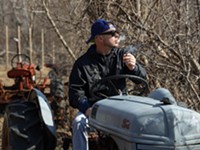
These small cannabis farmers say New York's legal weed rollout is ruining their lives
Mar 21, 2024 -
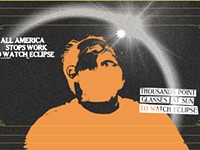
Man shakes fist at sun
Mar 15, 2024 -

Finger Lakes in a can, by way of Hollywood
Feb 13, 2024 - More »
